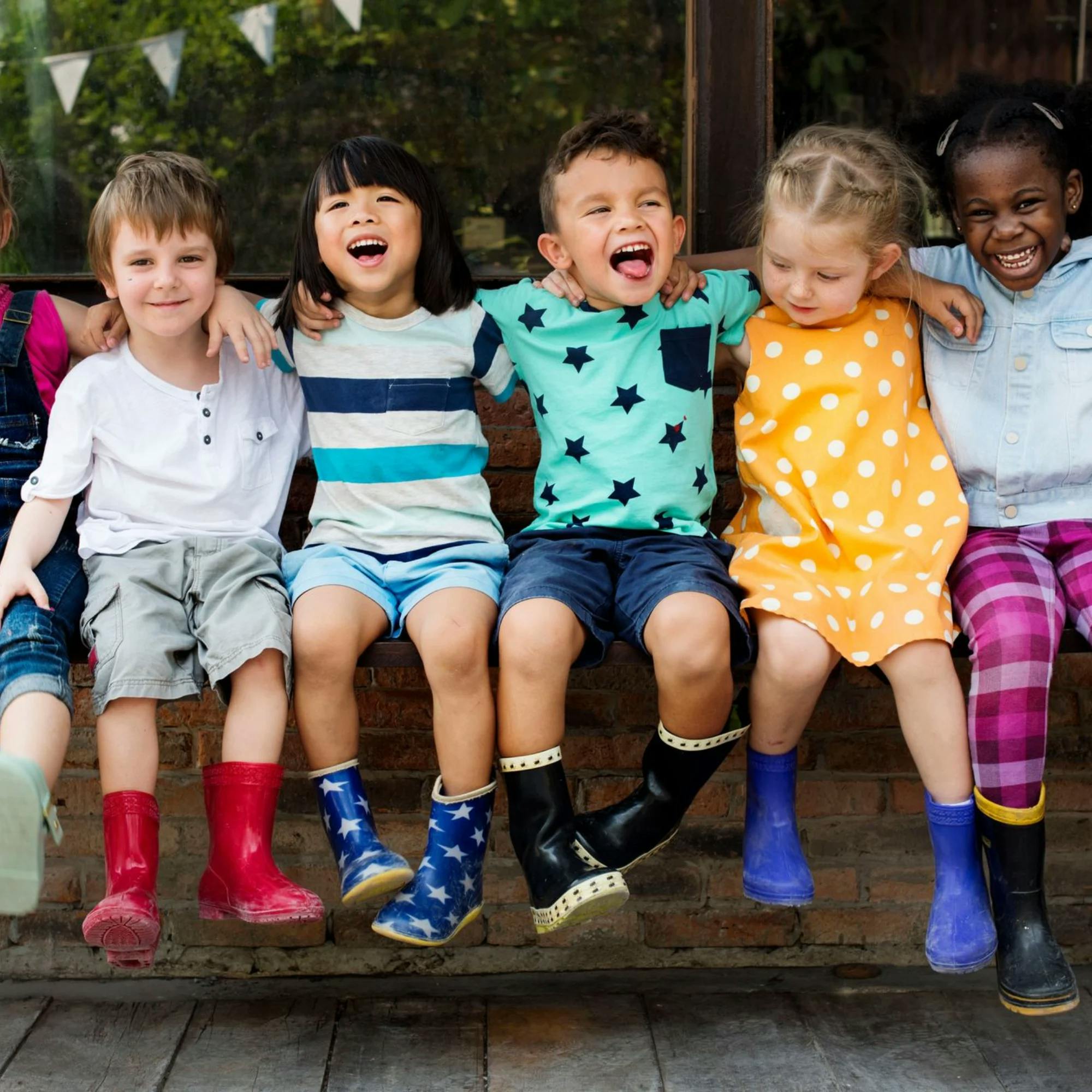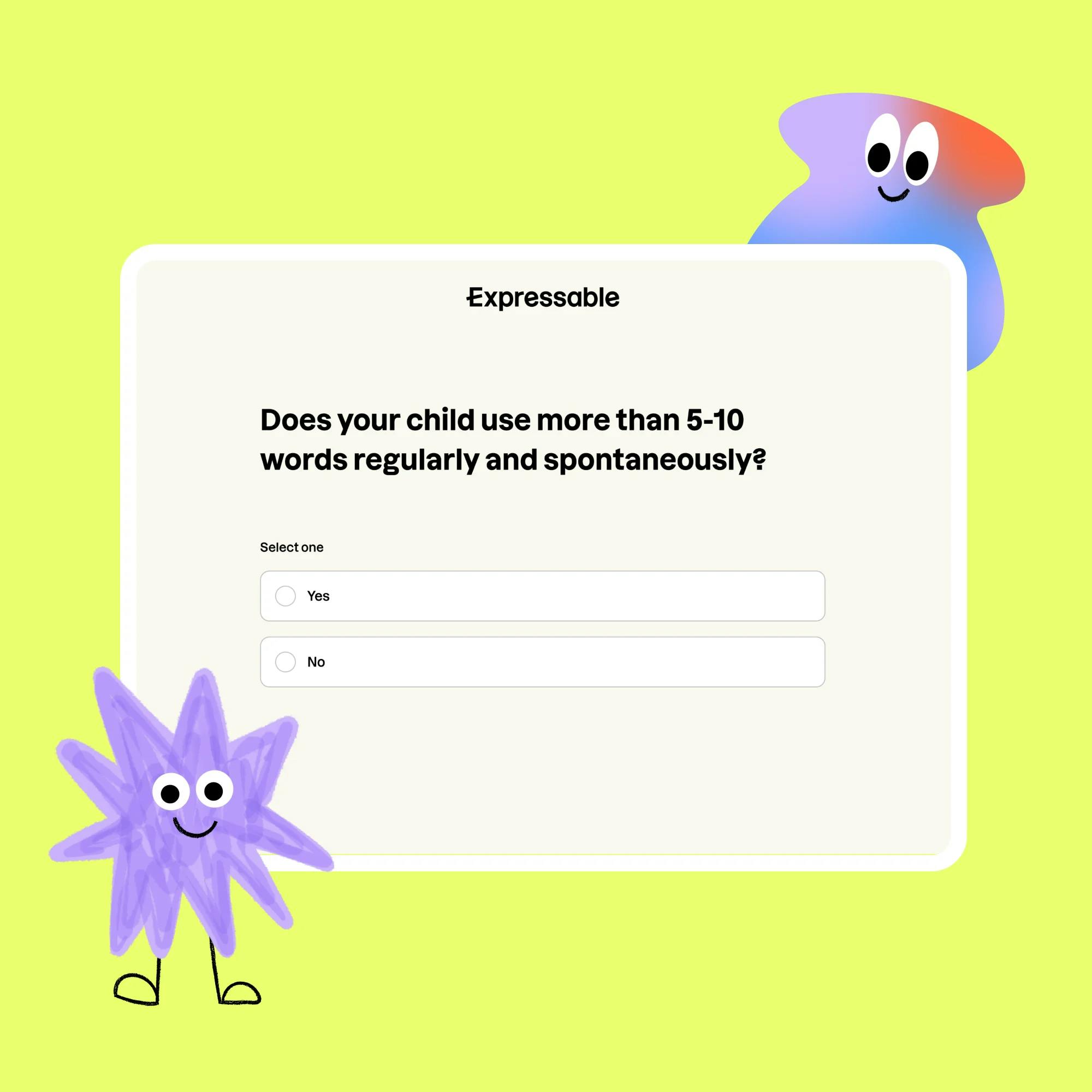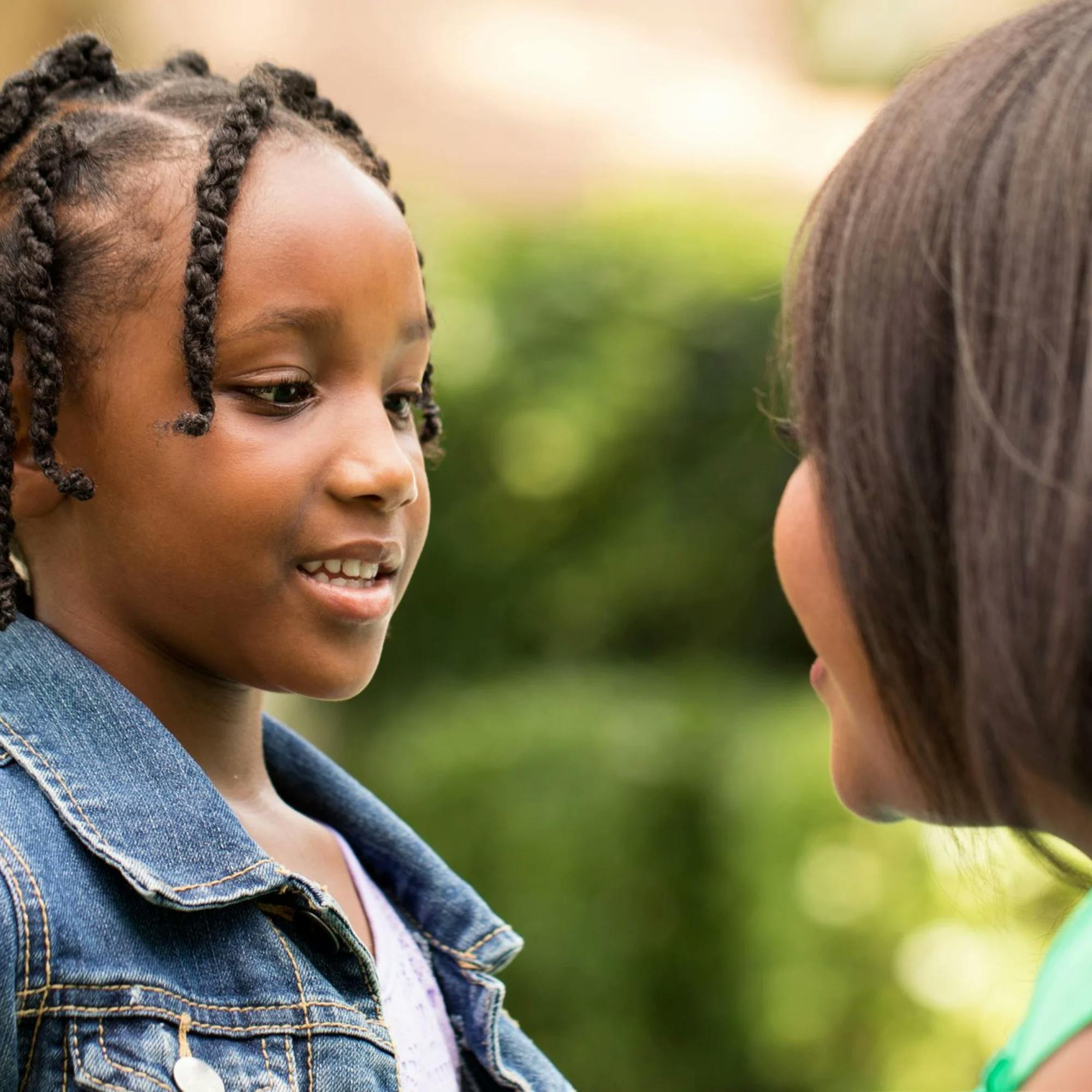
Speech and Language Milestones for 5-Year-Olds
 Abby Barnes, M.S., CCC-SLP
Abby Barnes, M.S., CCC-SLP
If you have a 5-year-old on your hands, you’re likely noticing their transition from a little kid to a big one! That growth isn’t just measured by shrinking clothes or a chart on the wall, but in their communication abilities as well.
There are three areas in particular where a child’s speech and language skills should be growing around age 5:
Articulation (speech) skills
Language abilities
Social language, also called pragmatic skills
Let’s take a closer look at these developmental milestones for 5-year-olds: what to expect, what parents should look for, and what to do if your child doesn’t seem to be on track.


Speech milestones for 5-year-olds
Articulation refers to the motoric ability to produce sounds using our lips, tongue, teeth, palate, and the coordination of our breath.
When children are young, it’s common to hear some misproductions of different speech sounds. While it can be adorable to listen to how little ones talk, as a child gets older, they should be able to pronounce more and more sounds correctly. If a child can’t say the appropriate sounds by the expected age, this is what qualifies as a speech delay.
By the time a child turns 5 years old, they should be able to say all speech sounds correctly. This means that even tricky sounds like /l/, /s/, /r/, and “TH” should be produced correctly in a 5-year-old’s speech.
Most children begin kindergarten at age 5, which means they’ll be around more people every day. It’s important for them to be understood by others. The ability to communicate clearly helps children grow their confidence and self-esteem. If they’re always being asked, “What did you say?”, they may not want to speak up or engage with others as much.
Clear speech is also a safety issue. As caregivers, we never want our children to be in an emergency situation. But if they are, their speech should be clear enough to communicate and answer important questions.


How can you help your 5-year-old with their speech?
If you’re noticing any errors in their speech, make an appointment with a speech therapist. The speech therapist can evaluate your child and make treatment recommendations. Early intervention is the most effective way to go. So don’t wait!
Language milestones for 5-year-olds
The bulk of language development happens during a child’s first 3 years of life. In this time span, they go from not talking at all to using phrases and sentences. When a child is 5 years old, there is still an amazing amount of growth happening, but you’ll notice it in more specific skills.
Storytelling
One of the major skills a 5-year-old should have is to be able to tell a short story. This may be something they make up, or a story about something that happened to them. The stories should be several sentences long and should focus on at least two different events. This could be something like, “I went to school this morning, and I sat next to my friend on the bus.”
Sentence structure
Whether your child is telling you a story or just carrying on a normal conversation, you should notice that their sentence structure is sounding more mature. Five-year-olds should be able to use compound and complex sentences easily:
Compound sentences are made up of two independent clauses conjoined using a conjunction like and or but. Here’s an example: “I would like to take a nap today, but I don’t have time.”
Complex sentences are made up of at least one independent clause and one dependent clause. An example would be: “After we finished the movie, we went out to eat.”
At 5 years old, your child’s vocabulary usage should also be improving. They probably don’t misuse words as much as they used to, and they likely have more specific, and correct, terminology for what they’re trying to say.


Reading comprehension
Just because your kiddo is getting older doesn’t mean those days of cuddling up to read together should end. It’s still incredibly important to read with your child! As they grow older, the variety of books they’re interested in and the complexity of the stories they can follow will increase.
After reading a book together, ask your child questions about what happened in the story, or what they think will happen next. They should be able to answer most questions about a story read to them and summarize what it was about.
Rhyming
Another important skill you should see develop by age 5 is rhyming. The ability to understand rhyming words is essential for kids building their phonological awareness skills–the awareness of the sounds that make up words.
The ability to rhyme and think about how words sound similar or different is a huge part of phonological awareness. Phonological awareness is also extremely important for early literacy skills. Children need these abilities as they start school and begin learning to read.


Social language milestones for 5-year-olds
Five-year-olds should begin to show maturity in their social communication skills, or pragmatic skills. They should be able to speak to a variety of people, whether other children or adults.
One thing to look for in your 5-year-old's conversation is whether they can stay on topic. Observe how well they communicate back and forth with another person, too. This can be through asking and answering questions and making relevant comments. Conversations should be two-sided, with both people participating about an equal amount. So the next time you see your child talking with other kids or adults, pay extra attention to how they approach it.
As 5-year-olds start school and become involved in a variety of social activities, they should learn to introduce themselves to, converse with, and verbally manage misunderstandings with kids of the same age. Learning to communicate with others is tricky, but it starts in these early years!


What if your child isn’t meeting 5-year-old milestones?
If you notice that your 5-year-old is lacking some of these skills, contact your pediatrician. In many cases, your pediatrician will need to write a referral for speech therapy in order for health insurance to cover it. Your child’s doctor may also be able to recommend specific speech therapy providers. If you have questions and want to go right to the source, reach out to a speech-language pathologist, also known as a speech therapist. They will be more than happy to answer your questions. The sooner you start, the faster your child will make progress!
How Expressable Can Help
Concerned your child isn't reaching age-expected milestones? Looking for communication support from a professional? Expressable is a national online speech therapy practice serving children and adults. We treat all major areas of communication and feeding, offer flexible hours including evenings and weekends, and accept most major health insurance plans. We’re proud to have earned more than 3,000 5-star reviews from our clients (4.9/5 average).
Our therapy model is centered on parent and caregiver involvement. Research proves that empowering caregivers to participate in their loved one’s therapy leads to better outcomes. That’s why we combine live, 1-on-1 speech therapy with personalized education and home practice activities for faster progress.
Communication is more than words. It’s how we share how we feel and show who we are. We’re here to help you or your child do just that.







